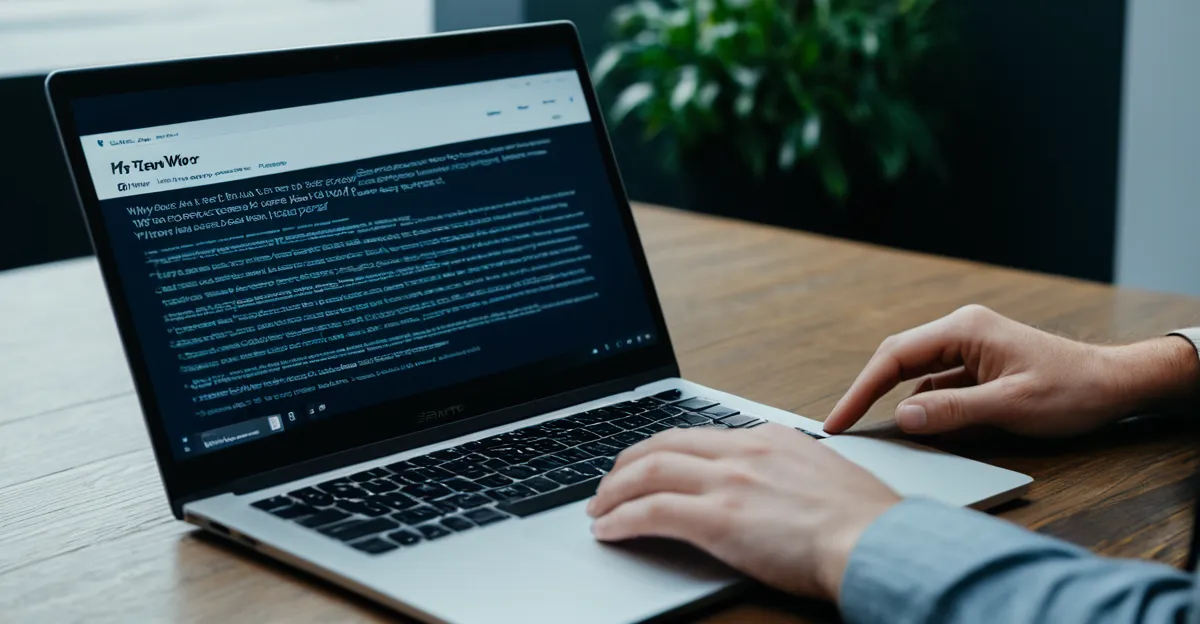Influence of UK Technological Advancements on Remote Work Patterns
Exploring the foundation of digital adaptation in UK work environments
The UK technology trends have significantly shaped remote work patterns, primarily through the widespread adoption of high-speed broadband and nationwide connectivity improvements. These advancements have enabled smoother access to cloud services and real-time communication tools, critical for hybrid working models.
Topic to read : What role does UK technology play in financial sector advancements?
Post-pandemic, the remote work impact accelerated dramatically, with businesses rapidly integrating digital collaboration and communication solutions. Tools like video conferencing and instant messaging platforms are now staples that promote seamless teamwork regardless of physical location. This digital transformation has not only enhanced operational flexibility but also allowed UK organizations to maintain productivity while accommodating employees’ preferences for flexible schedules.
Furthermore, the emphasis on upgrading infrastructure to support remote connectivity highlights the UK’s commitment to remaining competitive in the global technology landscape. Digital transformation is more than just an operational shift; it influences how teams coordinate, innovate, and engage, ultimately reshaping the overall work culture. The continuous evolution of UK technology trends promises ongoing improvements in remote work efficiency and access across various sectors.
In parallel : Is the UK Technology Sector Prepared for Future Challenges?
Productivity and Efficiency Gains Facilitated by UK Technologies
Exploring how digital tools redefine work output and satisfaction
The surge in remote work productivity across UK organisations owes much to the widespread implementation of UK business technology like cloud-based solutions and project management platforms. These tools enable employees to collaborate seamlessly regardless of location, streamlining workflows and reducing delays caused by traditional communication barriers.
Comparing productivity metrics before and after adopting these technologies reveals a marked improvement. Studies show that tasks once taking days can now be completed within hours. This boost results from enhanced real-time collaboration, easier file-sharing, and better task tracking, all integral components of modern digital environments.
Moreover, digital collaboration directly impacts employee work-life balance, a critical concern in remote settings. Flexible access to work materials and clearer project visibility empower UK teams to manage time efficiently, leading to increased job satisfaction and lower burnout rates. Companies investing in such technologies often report higher retention and engagement levels.
In summary, leveraging digital collaboration tools and UK business technology not only elevates productivity but also supports healthier, more balanced work experiences within the evolving remote work landscape.
Challenges and Solutions: Cybersecurity and Digital Security in UK Remote Work
Ensuring safe and resilient digital environments
The rapid expansion of UK technology trends and remote work impact has increased exposure to remote work security risks. With more employees accessing company systems from varied locations, vulnerabilities have multiplied. Cyber attacks such as phishing, ransomware, and data breaches have become more frequent, targeting dispersed digital workforces.
Addressing these digital workplace risks, UK organisations are investing heavily in secure digital infrastructure. This includes multi-factor authentication, encrypted communication channels, and comprehensive VPN use to protect sensitive data. Employee training plays a crucial role in mitigating human error—the leading cause of security breaches in remote environments.
Moreover, regulatory responses have strengthened, with UK cybersecurity frameworks mandating compliance with data protection laws like GDPR. Companies must implement robust security policies and continuous monitoring to align with these standards. This layered approach to security balances usability and protection, fostering trust in tech-enabled remote work.
By proactively addressing remote work security challenges through technology and education, UK organisations safeguard operations and employee data, enabling continued digital transformation with confidence.






